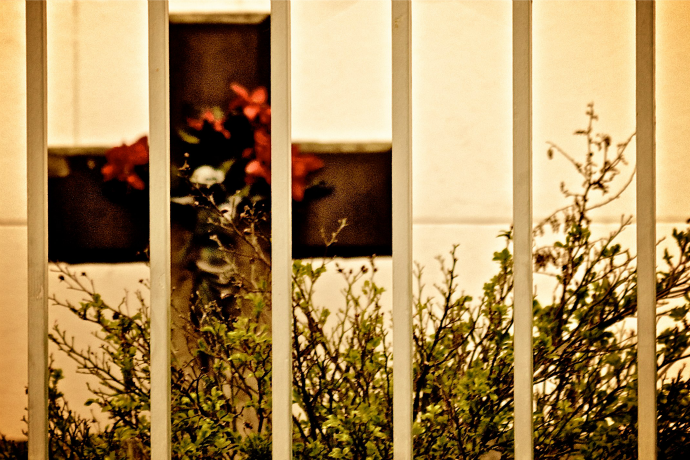What does a religion have to do with prison reform? In a recent study, cited in Newsweek, researchers concluded that “belief in a vengeful God,” for example, makes people less likely to support the re-integration of former prisoners into society.
But how trustworthy are these findings? We’ve argued in these pages that multiple-choice surveys are not always adequate when it comes to religion. For one thing, as sociologist Robert Wuthnow has pointed out here on RD, polls can have response rates as low as eight percent. (The study behind Newsweek‘s report was based on answers from the 386 Missourians who bothered to fill out a questionnaire.) Also, the methodological failings of surveys can yield results that are skewed toward researchers’ worldviews.
But still, there is good reason to expect that religion influences a person’s prison politics. Prison reform, after all, raises ethical questions about justice, punishment, and the nature of moral rehabilitation.
In the following conversation, Cubit co-editor Andrew Aghapour speaks with Stephanie Gaskill, an emerging scholar, about how a faith-based program at Louisiana’s Angola Prison showcases the kinds of nuances that so seldom emerge from polling.
________
Andrew Aghapour: What did you make of “Religious Beliefs and Public Support for Prisoner Reentry,” the study behind this Newsweek article?
Stephanie Gaskill: As with other survey-based research into religion, the methodology determines the findings. Researchers usually isolate a particular religious variable that they think relates to a specific political viewpoint, and then they conclude that those two things are connected.
Asking people whether people believe in a punitive or forgiving God seems to be a popular research topic. The problem, though, is that people can believe that God is both forgiving and punitive at the same time.
The goal of this particular study is to document how religion causes people to take certain political stances. At best, however, the authors have isolated a correlation between perceptions of God and stances on political reform. There’s no clear proof that one causes the other. They could both be a product, for example, of a person’s psychology.
Exactly. This study does acknowledge that to some extent by noting some of the ways answers vary according to race and gender—but to isolate beliefs about God and views on criminal justice and conclude that one causes the other is a stretch.
So here’s where I get curious. We have a mediocre study—a small sample size and response rate, imprecise questions, and some categorical biases—and yet it represents a growing research topic that has gained attention from the media. Why are journalists and social scientists so eager to attribute politics directly to religion?
It promises that people are predictable, even though, for the most part, they are not. Research like this presents the possibility that people can be easily classified, and that political messages can be targeted accordingly. These studies are attractive because they claim to pinpoint the one reason people support or oppose particular policies. This would be a boon for activists on either side of an issue. Who wouldn’t want to know the exact reasons people make the decisions they do?
Social scientists seem particularly keen to identify religion as a source for political opinions, I think for a number of reasons. First, many assume that religious beliefs are the most fundamental, unchangeable, deeply held beliefs that an individual holds. The assumption is that since you can’t change them, religious beliefs constitute a stable starting point from which you can determine the most basic underlying reasons for someone’s opinions in all other arenas.
Yes! This assumption has been criticized by Robert Wuthnow, among others.
Second, I think social scientists observe how evangelicals have an influential voice in American politics, and they assume that other religious groups share a similar connection between religion and politics. Perhaps they assume that most religious people gather at least once a week, making religion a convenient place to approach citizens about political issues. But religious beliefs do not equate to churchgoing, and it isn’t at all clear that most ministers make political statements from the pulpit.
Third, if you have strong opinions about religion, you’re probably concerned with its role in politics. People with religious commitments can rejoice that research proves religion to be relevant. Those who are skeptical of religion can reduce the political opinions that they disagree with to idiosyncratic religious dogma. This study on religion and prisoner reentry lends itself to this kind of thinking. Someone who supports reentry, for example, might conclude that their political opposition are just judgmental because they believe in a punitive God. Why doesn’t a person’s religious denomination give us insight into their politics? Shouldn’t your beliefs about morality and ultimate truths be a good predictor of your political views?
Why doesn’t a person’s religious denomination give us insight into their politics? Shouldn’t your beliefs about morality and ultimate truths be a good predictor of your political views?
Those are somewhat different questions, I think. A person’s religious denomination doesn’t necessarily tell you all you need to know about their actual beliefs. People can identify with specific denominations for reasons other than theology, like family tradition or social connections. It isn’t safe to assume that an individual is familiar with all the finer points of the doctrine within their denomination of choice. So looking at a denomination’s statement of faith wouldn’t necessarily tell you what people in the pews actually think.
Another problem with a lot of these kinds of surveys is that they don’t reveal what people actually mean when they indicate that they adhere to a particular belief.
So for example, in this study, the researchers ask people whether they believe that, “it is important to forgive those who sin.” I think Christians (who seem to be the main focus of this study) at all points along the political spectrum could agree with that idea very strongly, but what they mean by “forgiveness” could be very different. A person could believe that it is important to forgive formerly incarcerated people by welcoming them into churches, while also believing that criminals don’t deserve any special government assistance. The simplistic way the survey questions are worded doesn’t provide any way to account for this kind of nuance.
For your own research you’ve interviewed prisoners, wardens, and politicians about moral rehabilitation, which is the subject of a faith-based reform program at Louisiana’s Angola Prison. You must have a different sense of how religion and criminal justice interact “on the ground.”
I’ve been fascinated by the fact that so many people could share very similar theological views, but then come to different conclusions about what that theology should mean for people in prison.
As I’ve talked with people, it has become clear that a number of other factors play a role: their position within the criminal justice system, their personal experiences with law enforcement, their relationships with incarcerated people. I’ve met people who were staunch supporters of a “tough on crime” approach until one of their loved ones got locked up. I’ve met people who were somewhat indifferent to criminal justice system before they were involved in a prison ministry, and then became ardent advocates for reform.
Take, for example, Burl Cain, the former warden at Louisiana’s Angola Prison, who I have been following. He is a Southern Baptist who once identified as a conservative on criminal justice. But when he met some of the prison leaders at Angola, he said he thought he was “turning into a liberal.” He still associates closely with the Southern Baptist Convention, and this is a denomination often associated with some more punitive ideas about God. But Cain also voices support for reforms that are typically considered to be liberal, like parole eligibility for people sentenced to life without parole, and compassionate release for elderly prisoners.
Cain advocates for moral rehabilitation, and has frequently said that if people could just see how men at Angola have been rehabilitated, then they would support reform. He himself cites social science research linking religious activity in prisons to lower rates of violence and recidivism, and believes that you can establish irrefutable proof of a prisoner’s fundamental transformation. Cain also promises prisoners that if they behave, he will bring “the public”—legislators, judges, but also average citizens—to see how they have been transformed.
Yet among evangelical Christians, Cain’s main base of support, there is no united voice about what the consequences of moral rehabilitation should be. Some come to advocate for criminal justice reform as a result of their experiences at Angola. Some are content to continue participating in prison ministry and do not feel as though it is their role to try to change the system. Two people who visit Angola may come from the same theological background but have very different responses to their experiences within the prison. Cain has to cater to multiple audiences. So religious beliefs do not necessarily predict political views and actions.
Another, brief example of this came up recently, when I was talking to a judge who is very active in Angola’s prison ministries and supports sentencing reform. We were talking about an influential public figure, who often opposes those types of reform. The judge asked me if I would be surprised to learn that this person is also a “good Christian” like him. So even this judge recognized that religious belief doesn’t necessarily predict your political stances.
Your example illustrates how, on the topic of prison reform, there can be as much variation within denominations as there are across them. You alluded to this earlier, but what other variables, in your experience, influence people’s stances on criminal justice?
It’s tricky, because I don’t think there’s any one variable that will predict a person’s stance on criminal justice. Obviously race has played a major role in our criminal justice system. It’s not just that American prisons hold disproportionate numbers of African Americans. It’s that this racial composition created public support for, or at least indifference towards, “tough on crime” and “law and order” policies. Politicians have been able to pass harsh sentencing laws and build more prisons in part because deeply entrenched racial prejudices make the general public less likely to sympathize with the low-income African Americans most affected by these policies.
But it’s more complicated than just racial prejudice. It’s difficult to pin down exactly how people come to their views. I think the best we can do is present people’s views in all their complexity. Otherwise people arguing for one position or another may miss the mark because they misunderstand what their audiences actually think in the first place.
Religion does shape people’s views of the criminal justice system. People do frame their pursuit of reform as a consequence of their faith commitments. And they do attribute their support for long prison sentences to their religious convictions.
But the specific configuration of beliefs, relationships, and experiences that leads a person to favor a particular political position is often surprising and confusing. It’s hard to account for this kind of complexity with multiple-choice questions.
Also on the Cubit: The Problem with Pew’s Science & Religion Poll





